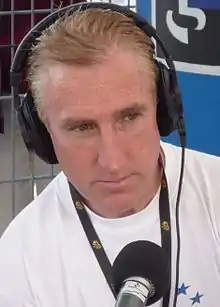Sean Kelly (cyclist)
John James 'Sean' Kelly (born 24 May 1956)[3] is an Irish former professional road bicycle racer, one of the most successful road cyclists of the 1980s, and one of the finest classics riders of all time. From turning professional in 1977 until his retirement in 1994, he won nine monument classics, and 193 professional races in total. He won Paris–Nice seven years in a row and the first UCI Road World Cup in 1989. He won the 1988 Vuelta a España and had multiple wins in the Giro di Lombardia, Milan–San Remo, Paris–Roubaix and Liège–Bastogne–Liège. Other victories include the Critérium International, Grand Prix des Nations and smaller tours including the Tour de Suisse, Tour of the Basque Country and Volta a Catalunya.
Kelly twice won bronze medals (1982, 1989) in the World Road Race Championships and finished 5th in 1987, the year compatriot Stephen Roche won gold. Kelly was first to be ranked No.1 when the FICP rankings were introduced in March 1984, a position he held for a record five years. By total career ranking points, Kelly is the second best cyclist of all time after Eddy Merckx.[4] In the 1984 season, Kelly achieved 33 victories.
Early life and amateur career
Kelly is the second son of Jack (John) and Nellie Kelly, a farming family in Curraghduff in County Waterford. He was born at Belleville Maternity Home in Waterford city on 21 May 1956. He was named John James Kelly after his father and then, to avoid confusion at home, referred to as Sean.[5] Seán is the Irish form of John.
For eight years he attended Crehana National School, County Waterford to which he travelled with his older brother, Joe. Fellow pupils recall a boy who retreated into silence because, they thought, he felt intellectually outclassed.[6] His education ended at 13 when he left school to help on the farm after his father went to hospital in Waterford with an ulcer. At 16 he began work as a bricklayer.
Kelly began cycling after his brother had started riding to school in September 1969. Joe rode and won local races and on 4 August 1970 Sean rode his own first race, at Kennedy Terrace in Carrickbeg, County Waterford, part of Carrick-on-Suir. The race was an eight-mile (13 km) handicap, which meant the weaker riders started first and the best last. Kelly set off three minutes before the backmarkers. He was still three minutes ahead when the course turned for home after four miles (6 km) and more than three minutes in the lead when he crossed the line. At 16 he won the national junior championship at Banbridge, County Down.
Kelly won the national championship again in 1973, then took a senior licence before the normal qualifying age of 18 and won the Shay Elliot Memorial race in 1974 and again in 1975 and stages in the Tour of Ireland of 1975.[7]
Kelly and two other Irish riders, Pat and Kieron McQuaid, went to South Africa to ride the Rapport Tour stage-race in preparation for the 1976 Olympic Games. They and others rode under false names[8] because of an international ban on athletes competing in South Africa, as a protest against apartheid. The three Irish were suspended from racing for six months. They were racing again when the International Olympic Committee banned them from the Olympics for life.[9]
Unable to ride in Canada, Kelly rode the 1976 Tour of Britain and then went to Metz, in France, after a London enthusiast, Johnny Morris, had arranged an invitation. Velo Club de Metz offered him £25 a week, free accommodation and four francs a kilometre for every race he won. Kelly won 18 of the 25 races he started in France and won the amateur Giro di Lombardia in Italy.
The win in Italy impressed two French team managers, Jean de Gribaldy and Cyrille Guimard. De Gribaldy went to Ireland unannounced to discuss a contract with the Flandria professional team.[10] He did not know where Kelly lived and was not sure he would recognise him, so he took with him another cyclist, to point out Kelly, and translate. Kelly was out driving a tractor and de Gribaldy set out again in the taxi that had brought him from Dublin, hoping to find Kelly as he drove home. They found him and went to Kelly's stepbrother's house. De Gribaldy offered £4,000 a year plus bonuses, and a week later Kelly asked for £6,000, and got it. He signed for de Gribaldy, with misgivings about going back on his promise to return to VC de Metz; the club had offered him better terms than before.[11]
Kelly left for France in January 1977 and lived for two years at 18 place de la Révolution in Besançon, de Gribaldy's home town. He shared with four teammates.
Professional career
Early years
Kelly's first professional race was the Étoile de Bessèges. It started on 7 February 1977 and lasted six days. Kelly came 10th on the first day. The Flandria team was in two parts: the strongest riders, such as the world champion Freddy Maertens, were in the main section, based in Belgium. Kelly rode with the second section, based more in France because Flandria wanted to sell more of its mopeds, scooters and bicycles there. The strongest riders in both camps came together for big races. Kelly was recruited as a domestique for Maertens in the main team for year's Paris–Nice – shortly afterwards he won his first race, the opening stage of the Tour de Romandie. In 1978, he started in the Tour de France, in which he also won a stage.
Kelly stayed with de Gribaldy for 1977 and 1978. Then in 1978 Michel Pollentier was disqualified from the Tour de France after cheating a drugs test on the afternoon that he took the race lead. He left the team at the end of the season and started his own, with a new backer, Splendor. Both Maertens and Pollentier wanted Kelly. Pollentier and Splendor offered Kelly more and made him a team leader.[12] But Splendor was new and logistic problems became obvious. The bikes were in poor state – enough that Splendor decided not to ride Paris–Roubaix – and the manager, Robert Lauwers, was replaced. Kelly rose above it and rode for himself. The writer Robin Magowan said:
Some people can do business on the committee system; others find that life is only fun when you are running the show. In Kelly's case it was to mean working for the collection of underpaid has-beens that de Gribaldy habitually assembled. But a smaller, less pretentious team can have its advantages for a rider of Kelly's sort. When you don't have to compete for a team's loyalty you can concentrate on winning races, and that's exactly what Kelly proceeded to do.[13]
In time the team improved. Kelly received few offers from elsewhere and Splendor matched those he did get. He was paid about £30,000 plus bonuses in his last season with Splendor. But strengthening the team had included bringing in another sprinter, Eddy Planckaert, and Kelly's role as a foreigner in the team was unclear. He heard that de Gribaldy was starting a new team and the two were reunited in 1982 at Sem-France Loire.
Stage successes
By now Kelly had a reputation as a sprinter who could not win stage races, although he did finish fourth in the 1980 Vuelta a España.[14] De Gribaldy employed him as unambiguous team leader, someone he believed could win stage races and not just stages. To this end, de Gribaldy encouraged Kelly to lose weight, convincing the latter that he could target the overall win at Paris–Nice: Kelly won the "Race to the Sun" and four of its stages. On the last of those, a time-trial to the col d'Eze, he beat Gilbert Duclos-Lassalle and pushed him out of the lead. Years later Kelly admitted that his countryman Roche's emergence during his neo-pro season in 1981, during which he had also won Paris-Nice, was one of the factors which motivated him to adjust his focus to becoming more of an all-round rider. However, the spring classics season proved a disappointment, with Kelly's best result being a 12th place in Paris–Roubaix after suffering multiple punctures.[15] Despite that, that season he went on to win another of objectives set by de Gribaldy: the points classification of the Tour de France, where he took five second places on flat stages before winning a reduced bunch sprint in Pau after climbing the Col d'Aubisque. His points total was nearly three times that of the points classification runner-up, the yellow jersey winner Bernard Hinault.[16][15] He finished third in the world championship in England - the first worlds medal for an Irish rider since Shay Elliott's silver in 1962[15] - and at the end of the year married his girlfriend, Linda Grant, the daughter of a local cycling club official. Carrick-on-Suir named the town square "the Sean Kelly Square" in tribute to his achievements in the 1982 Tour de France and his bronze medal at the championship[17] The following year Kelly again won Paris–Nice and then the Critérium International and the Tour de Suisse as well as the points classification in the Tour de France the second time in a row.
Kelly confirmed his potential in autumn 1983. A leading group of 18 entered Como in the Giro di Lombardia after a battle over the Intelvi and Schignano passes. Kelly won the sprint by the narrowest margin, less than half a wheel separating the first four, against cycling greats including Francesco Moser, Adri van der Poel, Hennie Kuiper and world champion Greg LeMond.
Kelly dominated the following spring. He won Paris–Nice for the third successive time beating Roche as well as the Tour de France winner, Bernard Hinault[18] who was returning after a knee injury. Kelly finished second in Milan–San Remo and the Tour of Flanders, but was unbeatable in Paris–Roubaix and Liège–Bastogne–Liège. The day after Paris–Roubaix, the French daily sports paper, L'Équipe, pictured Kelly cycling the cobbles with mud on his face and had the heading Insatiable Kelly! referring to his appetite for winning that spring[19] He won all three stages in the Critérium International: the bunch sprint on stage 1, a solo victory in the mountain stage and beating Roche in the final time trial. Kelly achieved 33 victories in 1984. He was becoming a contender in the grand tours, as seen by finishing fifth in the Tour de France. This may have caused him to lose his grip on the points classification in that year's Tour. Kelly was wearing it as the Tour was finishing on the Champs-Élysées but lost it in the bunch finish to the Belgian, Frank Hoste, who finished ahead of Kelly gaining points to take the jersey off Kelly's shoulders.[20]
He won Paris–Nice in 1985, again beating Roche. He also took three stage wins at the Vuelta a España, but suffered a frustrating spring classics season, taking a third place at Paris-Roubaix and fourth at Liège–Bastogne–Liège, but losing out on wins through poor tactical decisions, such as at Milan-San Remo where he and rival Eric Vanderaerden marked each other out of contention. He won the points classification for the third time and finished fourth in the 1985 Tour de France, where his rivalry with Vanderaerden boiled over at the finish of the sixth stage in Reims: the latter veered to prevent Kelly from coming past in the final sprint, leading Kelly to push Vanderarden, and the Belgian pulling the Irishman's jersey in response. The race saw him battle for the last step on the GC podium with Stephen Roche: although Roche finished the tour in third, the duo's performances saw interest in the race expanding gradually in the Irish press.[21] Kelly won the first Nissan International Classic beating Van Der Poel. At the end of the season, he won the Giro di Lombardia.
He won Milan–San Remo in 1986 after winning Paris–Nice. In Milan-San Remo, Kelly was being marked closely by Vanderaerden in the closing stages of the race. Mario Beccia attacked on the race's final climb of the Poggio di San Remo and was followed by Greg LeMond. In order to shake Vanderaerden, Kelly feigned a mechanical problem before sprinting away to join the lead group, and drove hard on the front to prevent Niki Rüttimann, LeMond's team-mate, who had followed Kelly, from linking up with the front group: Kelly won the three-up sprint at the finish. He also took stage wins at the Volta a la Comunitat Valenciana, Critérium International and Three Days of De Panne. He finished second in the Tour of Flanders and won Paris–Roubaix again. According to his autobiography Hunger, Kelly gave his support to Van der Poel in the latter's bid to win Flanders in exchange for the Dutchman's help in the French cobbled classic. In Flanders, Kelly rode on the front of the leading four man group in the closing stages of the race, which also included Van der Poel, Jean-Philippe Vandenbrande and Steve Bauer: regarding the final sprint, Kelly wrote that "I started my sprint early, and I knew Van der Poel was probably in my wheel as well, but I certainly gave it 100 per cent". After Flanders, he flew to Spain to race the Tour of the Basque Country, which he won, before flying north to compete in Paris-Roubaix. Roles were reversed as Kelly followed Van der Poel in latching onto an attack from Ferdi Van Den Haute on a late cobbled secteur to form another four-man group along with Rudy Dhaenens. Van Den Haute attacked again a kilometre from the race finish - which was located away from Roubaix Velodrome for the first time since 1943 - and once again Van der Poel led Kelly out in the sprint, enabling the latter to cross the line first. To date, Kelly is one of only three riders to win the double of Milan-San Remo and Paris-Roubaix in the same year, along with Cyrille van Hauwaert in 1908 and John Degenkolb in 2015. Kelly was enagaged in an intense racing schedule, even by contemporary standards, having competed 34 times from the beginning of the season to 1986. He later explained this as partly due to the influence of Jean de Gribaldy, who reasoned that he might as well race if he was going to have to train on his bike if he didn't compete, and because of new sponsor Kas, a Spanish soft drink manufacturer, who were primarily concerned with success in Spain, and uninterested in winning the classics, meaning Kelly had to compete in both types of races. He finished on a podium in a grand tour for the first time when he finished third in the 1986 Vuelta a España, winning two stages along the way.[14][22] Kelly missed the 1986 Tour de France due to a serious crash in the last stage of Tour de Suisse. He returned to Ireland and won the Nissan Classic again. His second win in the Nissan came after a duel with Steve Bauer, who took the yellow jersey after Kelly crashed numerous times. Kelly went into the final stage three seconds behind Bauer and took the jersey when he finished third on the stage and won bonus seconds.[23] Kelly took more than 30 victories in total across the 1986 season.[22]
Kelly won Paris–Nice in 1987 on the last day after Roche, the leader, punctured. Later, leading the Vuelta a España with three days to go, he retired with an extremely painful saddle sore. His bad luck continued in the Tour de France, retiring after a crash tore ligaments in his shoulder. After the World Championship, in which he finished fifth behind Roche, Kelly returned to Ireland to win the Nissan for the third consecutive time.
Kelly won his seventh Paris–Nice in spring 1988, a record. He won Gent–Wevelgem several weeks later.
Grand Tour success
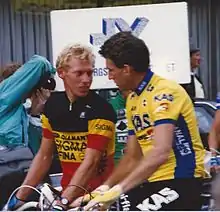
Kelly returned in April to the 1988 Vuelta a España which started on the rugged mountainous island of Tenerife where his team struggled in the second stage, losing the influential rider Thomas Wegmüller to dysentery and losing further time in the time-trial around Las Palmas. However, on the Spanish mainland, Kelly concentrated on winning sprint time bonuses, battling with sprinter Jorge Dominguez, the BH teammate of leader, Laudelino Cubino.
After regaining a minute in four days, the race reached the mountains where Kelly relied on help from Robert Millar of team Fagor-MBK to stay within two minutes of Cubino after the mountain trial to Alto Oviedo. He then finished fourth behind stage-winner Fabio Parra and Anselmo Fuerte on stage 13 to the ski-station at Cerler, cutting a minute and a half into Cubino's lead.[24] From this stage, Fuerte had moved into second overall and later took the jersey from Cubino on the 16th stage to Albacete when the leader got caught on the wrong side of a split caused by cross-winds.[25]
Kelly maintained the gap between himself and Fuerte and started the time trial on the second last day 21 seconds behind. Confident that he could overhaul the leader, he "put it in a big gear and gave it everything".[26] He took the leader's amarillo jersey, beating Fuerte by almost two minutes. The following day Kelly won his only grand tour, over West German Raimund Dietzen[27] and also won the points competition.[28] After his Vuelta win Kelly returned to Carrick-on-Suir where a parade was held in his honour.[29]
Twilight of his career
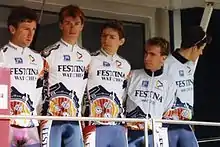
Kelly finished 46th in the Tour de France just over an hour behind Pedro Delgado. He was no longer a contender for overall victory after this and said he'd never win the Tour de France.[30] Kelly finished third behind the German, Rolf Gölz, in the Nissan Classic that year Kelly finished third in the sprint at the rainy world road championship of 1989 at Chambéry, France, behind Dimitri Konyshev and Greg Lemond. Lemond won his second rainbow jersey as world champion.
Kelly switched to the Dutch PDM team and stayed there three years until the end of 1991. The following year he won Liège–Bastogne–Liège, the points classification in the Tour de France, and the inaugural UCI Road World Cup championship. Kelly won the Tour de Suisse in 1990. In March 1991, he broke a collarbone,[31] then pulled out of the 1991 Tour de France[32] and then while Kelly was competing the Tour of Galicia in August, his brother Joe was killed in a race near Carrick-on-Suir.[33] He came back to win his fourth Nissan Classic by four seconds over Sean Yates[34] and then went to and won the classic at the end of the season, the Giro di Lombardia.
Kelly won the Giro di Lombardia for a third time in 1991 but started 1992 regarded as past his prime. He moved to Festina and prepared for Milan–San Remo. Race favourite Moreno Argentin attacked from the leading group on the final climb, the Poggio. He broke clear after several attempts and reached the top eight seconds before the rest. It seemed he was on his way to a solo victory as the peloton descended the Poggio, where Maurizio Fondriest led, marked by Argentin's teammate Rolf Sørensen. Kelly was behind these two in third position. Kelly attacked with three kilometres of descending left. Sorensen could not hold his acceleration and Kelly got away. He caught Argentin with a kilometre to go. Both stalled, the chasers closing fast, Argentin gesturing to Kelly to take the front. Kelly stayed on Argentin's wheel. The two moved again, preparing for a sprint; Kelly launched himself and in the final 200m came past Argentin to win his final classic.
In 1992, Kelly travelled to Colombia for the Clásico RCN, where he won the second stage.[35] His PDM teammate, Martin Earley, pushed him into second place at the 1993 Irish road championship.
Kelly's last year as a professional was 1994, when he rode for Catavana. He returned to Carrick-on-Suir at the end of the season to ride the annual Hamper race. That was Kelly's last race as a professional. Eddy Merckx, Laurent Fignon, Bernard Hinault, Roger De Vlaeminck, Claude Criquielion, Stephen Roche, Martin Earley, Acacio Da Silva and Paul Kimmage were among 1,200 cyclists present.[36] The President of Ireland, Mary Robinson, attended a civic presentation to Kelly the day before the race. Kelly won in a sprint against Roche. Kelly won this race again six years later.
Legacy and riding style
Kelly's career is remarkable in that it spanned the eras of several legends of the Tour de France, from Eddy Merckx through to Miguel Indurain. His first Tour was also the first for Bernard Hinault and the two battled in the sprint of stage 15. Greg LeMond and Laurent Fignon emerged in the early eighties and challenged Kelly in the classics as well as in the Tour, and Kelly witnessed the rise of Miguel Indurain and the early career of Lance Armstrong. Kelly's career coincided with Stephen Roche as well as classics specialists including Francesco Moser, Claude Criquielion, Moreno Argentin and Eric Vanderaerden. Evidence of Kelly's dominance can be seen from his three victories in the season-long Super Prestige Pernod International competition (predecessor to the World Cup). Kelly competed throughout the season, from Paris–Nice in March to the Giro di Lombardia in October, winning both in 1983 and 1985.
Robin Magowan said:
- "It is customary to talk of Kelly as quintessentially an Irish rider. For my part, though, I think it helps to place Kelly better as a cyclist to see him as the last of the Flemish riders.[37] This is usually a title associated with the post-war rider, Briek Schotte who has become appropriately enough the man in day-to-day charge of the de Gribaldy teams. As exemplified by Schotte it stood for a certain type of mentality, willing to suffer, narrowly focussed, and hard, hard, hard. Kelly had all this in him from his Irish small-farm background: the outside loo;[38] the dogs that have to be chained before you can step from your car; the one career possible, as a bricklayer on a construction site, stretching away and away into the grey mists. On the positive side, along with the self-reliance, came a physical strength that even by peasant standards is impressive. In a profession of iron wills, there is no one harder."[39]
While some sprinters remain sheltered in the peloton until the final few hundred metres, Kelly could instigate breaks and climb well, proving this by winning the Vuelta a España in 1988, as well as winning a stage of Paris-Nice on the climb of Mont Ventoux. His victories in Paris–Roubaix (1984, 1986) showed his ability in poor weather and on pavé sections, while he could stay with the climbing specialists in the mountains in the Tour de France. He was also a formidable descender, clocking a career top race speed of 124 km/h, while descending from Col de Joux Plane to Morzine on stage 19 of the Tour in 1984.[40] He finished fourth in the Tour in 1985 and won the points classification in 1982, 1983, 1985, and 1989, the first to win four times, a feat he repeated in the Vuelta a España. Kelly won five stages in the Tour de France and 16 in the Vuelta a España.
Doping
Kelly failed drug tests twice during his career. After the 1984 edition of Paris–Brussels, in which he had finished third, cycling authorities stated that a urine sample supplied by Kelly had tested positive for pemoline (Stimul), a result which was repeated with the testing of a B sample. The Royal Belgian Cycling League sentenced Kelly to a three-month suspended ban and a fine. Kelly denied taking any banned substances: in an interview at the time with David Walsh, he claimed that there were "irregularities at the testing centre that day... the medical control at Paris-Brussels was very badly organised and lots of people were in the room who had no right to be there... in all this confusion something must have gone wrong". In his autobiography Hunger, Kelly stated that Irish Cycling Federation official Karl McCarthy, who acted as a witness on Kelly's behalf at the second test as he was unable to attend due to racing commitments, told him that the B sample was "tiny" and below the amount required for the test. In his book Breaking the Chain, Kelly's former soigneur Willy Voet claimed that Kelly had been ill with bronchitis in the week before the race and had taken ephedrine to treat it: to avoid a positive test, Voet wrote that Kelly had carried a container in his shorts filled with urine supplied by one of the team's mechanics to doping control, and that the Stimul detected in the sample had been taken by the mechanic to help him stay awake while driving the team's truck.[41]
Kelly's second positive test occurred at the 1988 Tour of the Basque Country, where he tested positive for codeine. Having finished third in the overall classification, he received a ten-minute penalty that dropped him down the order. Kelly explained this as being the result of a worsening cough he had developed during the race: he said that between the end of the final stage and attending doping control he took a swig from a bottle of cough medicine, to which he attributed the presence of codeine in his urine sample.[41]
Post-cycling career
Kelly is a commentator for the English-language services of Eurosport and has established and is involved in the Sean Kelly Cycling Academy in Belgium. In 2006 he launched Ireland's first professional team, the Sean Kelly Team, composed of young Irish and Belgian riders based at the Sean Kelly Cycling Academy in Merchtem, Belgium.[42] He has a cycling clothing company which supplies clubs and companies, and which also organises corporate cycling events in Ireland and throughout Europe. He rides long-distance charity cycling tours with Blazing Saddles, a charity raising money for the blind and partially sighted. Such tours have included a journey across America by bike in 2000. He also participates in charity cycling endurance events in Scotland (notably with the Braveheart Cycling Fund), England, France and Ireland. Sean Kelly regularly cycles with SportActive cycling holidays in Mallorca.
The inaugural Sean Kelly Tour of Waterford was held on 19 August 2007.[43] Kelly was one of the 910 participants. The second was on 24 August 2008. Kelly was one of the 2,048. The 2009 tour went ahead on 30 August 2009. It attracted over 3,400 participants. On 29 August 2010, 3708 cyclists took part in the Tour. In 2011 the attendance ballooned to over 8,000 over the two days and 10–50–90 and 160 km (6.2–31.1–55.9 and 99.4 mi) events. This ran annually until 2017. In 2018, the organisers of The Sean Kelly Tour of Waterford completed a review and decided not to run the event and to look at other cycling initiatives in and around Waterford.[44]
In November 2013, at Dublin City University, Sean Kelly was awarded with an Honorary Doctorate in Philosophy in recognition of his contribution to Irish sport.[45]
Personality
Fellow pupils at Kelly's school [see above] felt Kelly fell silent because he felt intellectually outclassed. The lack of words continued even after Kelly had proved himself one of the best racing cyclists of his era. The writer Robin Magowan said:
- "On the bench, swivelling his body away as you approach, chary of words when not downright hostile, Sean Kelly remains for a journalist the hardest of the great riders to fathom. In an age when most of his brethren rate themselves, and are paid, according to the amount of publicity inches they have gleaned in a season, this farmer's son... remains very much the exception, closed, withdrawn, and extremely suspicious. Yet one has only to look at him joking with Stephen Roche, or know the respect with which he is held by the peloton, to see that he gets along very well without us."[46]
Coverage
Kelly is the subject of several books, including a biography Kelly in 1986 and A Man For All Seasons by David Walsh in 1991.
Sean Kelly published his autobiography Hunger in 2013.[47]
Career achievements
Major results
- 1972
- 1st
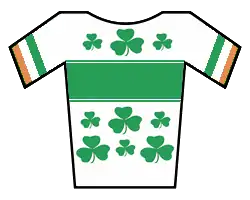 Road race, National Junior Road Championships
Road race, National Junior Road Championships - 1973
- 1st
 Road race, National Junior Road Championships
Road race, National Junior Road Championships - 1975
- Tour of Ireland
- 1st Mountains classification
- 1st Stages 5, 6 & 7
- 1st Stage 7 Milk Race
- 1977
- 1st
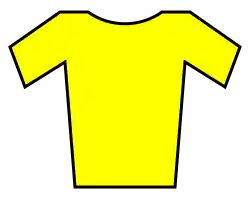 Overall Cinturón a Mallorca
Overall Cinturón a Mallorca - 1st Piccolo Giro di Lombardia
- 1st Stage 6 Milk Race
- 1977
- 1st Stage 1 Tour de Romandie
- 1st Stage 4 Étoile des Espoirs
- 1978
- 1st Stage 6 Tour de France
- Setmana Catalana de Ciclismo
- 1st Stage 1a (TTT) & 1b
- 1st Stage 3 Tour Méditerranéen
- 1st Stage 5a Étoile des Espoirs
- 1979
- Vuelta a España
- 1st Stages 1 & 8a
- 1st GP de Cannes
- 9th Road race, UCI Road World Championships
- 10th Omloop Het Volk
- 1980
- 1st
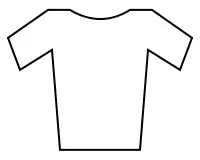 Overall Three Days of De Panne
Overall Three Days of De Panne - 1st Stage 2
- Tour de France
- 1st Stages 19 & 21
- 1st Stage 3a Critérium du Dauphiné Libéré
- 1st Stage 4 Ronde van Nederland
- 2nd E3 Prijs Vlaanderen
- 2nd De Brabantse Pijl
- 2nd Tour du Haut Var
- 3rd Amstel Gold Race
- 3rd Omloop Het Volk
- 3rd Kuurne–Brussels–Kuurne
- 4th Overall Vuelta a España
- 1st
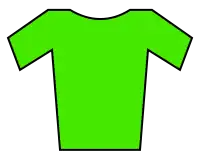 Points classification
Points classification - 1st Sprints classification
- 1st Stages 1, 2, 14, 17 19 & 21
- 1st
- 4th Milan–San Remo
- 1981
- 1st Stage 15 Tour de France
- 1st Stage 2 Critérium du Dauphiné Libéré
- 1st Stage 5a Ronde van Nederland
- 1st Stage 3 Tour of Belgium
- 1st Stage 1 Tour of Luxembourg
- 2nd Overall Four Days of Dunkirk
- 1st Stage 2
- 4th La Flèche Wallonne
- 5th Rund um den Henninger Turm
- 6th Amstel Gold Race
- 7th De Brabantse Pijl
- 8th Tour of Flanders
- 9th Züri–Metzgete
- 1982
- 1st
 Overall Paris–Nice
Overall Paris–Nice
- 1st Stages 3, 5, 7a & 7b (ITT)
- Etoile des Espoirs
- 1st Stages 1, 2 & 3
- Tour de l'Aude
- 1st Stages 1 & 2
- 1st Tour du Haut Var
- 1st Stage 2 Grand Prix du Midi Libre
- 1st Stage 3 Critérium International
- Tour de France
- 1st
 Points classification
Points classification - 1st Intermediate Sprints classification
- 1st Stage 12
- 1st
- 3rd
 Road race, UCI Road World Championships
Road race, UCI Road World Championships - 3rd Omloop Het Volk
- 3rd Kuurne–Brussels–Kuurne
- 3rd Rund um den Henninger Turm
- 4th Amstel Gold Race
- 6th GP Ouest–France
- 8th La Flèche Wallonne
- 10th Liège–Bastogne–Liège
- 1983
- 1st
 Overall Paris–Nice
Overall Paris–Nice
- 1st Stages 3a, 4 & 7b (ITT)
- 1st
 Overall Tour de Suisse
Overall Tour de Suisse
- 1st
 Points classification
Points classification - 1st Stages 3 & 5b (ITT)
- 1st
- 1st
 Overall Critérium International
Overall Critérium International
- 1st Stage 3
- 1st Giro di Lombardia
- 1st Grand Prix d'Isbergues
- 1st Stage 4 Etoile des Espoirs
- 1st Stage 2 Paris–Bourges
- 2nd Overall Super Prestige Pernod International
- 2nd Kuurne–Brussels–Kuurne
- 2nd Giro del Piemonte
- 5th Milan–San Remo
- 6th Trofeo Baracchi
- 7th Overall Tour de France
- 8th Road race, UCI Road World Championships
- 1984
- 1st
 Overall Paris–Nice
Overall Paris–Nice
- 1st Stages 2 & 7b (ITT)
- 1st
 Overall Volta a Catalunya
Overall Volta a Catalunya
- 1st
 Points classification
Points classification - 1st
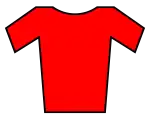 Mountains classification
Mountains classification - 1st Stages 1, 4a, 4b & 7a (ITT)
- 1st
- 1st
 Overall Tour of the Basque Country
Overall Tour of the Basque Country - 1st Stages 1, 3 & 5b (ITT)
- 1st
 Overall Critérium International
Overall Critérium International
- 1st Stages 1, 2 & 3 (ITT)
- 1st Overall Super Prestige Pernod International
- 1st Paris–Roubaix
- 1st Liège–Bastogne–Liège
- 1st Paris–Tours
- 1st GP Ouest–France
- 1st Critérium des As
- 1st Paris–Bourges
- 2nd Tour of Flanders
- 2nd Milan–San Remo
- 2nd Grand Prix des Nations
- 3rd Rund um den Henninger Turm
- 4th Overall Tour de Suisse
- 1st
 Points classification
Points classification - 1st Stage 1
- 1st
- 4th Overall Tour du Limousin
- 1st Stages 1b, 2 & 4
- 5th Overall Tour de France
- 1985
- 1st
 Overall Paris–Nice
Overall Paris–Nice - 1st
 Overall Nissan Classic
Overall Nissan Classic
- 1st Stages 1 & 3a (ITT)
- Tour of the Basque Country
- 1st Stages 3 & 5b (ITT)
- 1st Overall Super Prestige Pernod International
- 1st Giro di Lombardia
- 1st Critérium des As
- 1st Stage 3 Ronde van Nederland
- 2nd Overall Volta a Catalunya
- 1st Stage 2
- 2nd Overall Three Days of De Panne
- 3rd Overall Critérium International
- 1st Stage 1
- 3rd Overall Vuelta Ciclista a la Communidad Valenciana
- 1st Stage 5
- 3rd Paris–Roubaix
- 4th Overall Tour de France
- 4th Overall Tour de Suisse
- 4th Liège–Bastogne–Liège
- 6th Overall Tour of the Basque Country
- 7th Milan–San Remo
- 7th Gent–Wevelgem
- 9th Overall Vuelta a España
- 1st
 Points classification
Points classification - 1st Stages 2, 10 & 15
- 1st
- 1986
- 1st
 Overall Paris–Nice
Overall Paris–Nice
- 1st Prologue, Stages 3 & 7b (ITT)
- 1st
 Overall Volta a Catalunya
Overall Volta a Catalunya
- 1st
 Points classification
Points classification - 1st Stage 7 (ITT)
- 1st
- 1st
 Overall Tour of the Basque Country
Overall Tour of the Basque Country
- 1st Stages 3, 5a & 5b
- 1st
 Overall Nissan Classic
Overall Nissan Classic - Vuelta Ciclista a la Communidad Valenciana
- 1st Stages 1 & 3
- 1st Overall Super Prestige Pernod International
- 1st Milan–San Remo
- 1st Paris–Roubaix
- 1st Grand Prix des Nations
- 1st Critérium des As
- 1st Stage 4a Vuelta a Aragón
- 1st Stage 4 Tour du Limousin
- 2nd Overall Critérium International
- 1st Stages 1 & 3 (ITT)
- 2nd Overall Three Days of De Panne
- 1st Stage 1b (ITT)
- 2nd Overall Paris–Bourges
- 1st Stage 2
- 2nd Tour of Flanders
- 2nd Giro di Lombardia
- 2nd GP Ouest–France
- 2nd Brussels Cycling Classic
- 3rd Overall Vuelta a España
- 1st
 Points classification
Points classification - 1st Mixed classification
- 1st Stages 10 & 13
- 1st
- 5th La Flèche Wallonne
- 5th Road race, UCI Road World Championships
- 6th Paris–Tours
- 1987
- 1st
 Overall Paris–Nice
Overall Paris–Nice
- 1st Stage 3
- 1st
 Overall Tour of the Basque Country
Overall Tour of the Basque Country
- 1st
 Points classification
Points classification - 1st
 Mountains classification
Mountains classification - 1st Stages 4 & 5b (ITT)
- 1st
- 1st
 Overall Critérium International
Overall Critérium International
- 1st Stages 2 & 3 (ITT)
- 1st
 Overall Nissan Classic
Overall Nissan Classic - Vuelta a España
- 1st Stages 1 & 3
- Held
 after Stages 1–4
after Stages 1–4
- 1st Stage 7 Vuelta Ciclista a la Communidad Valenciana
- 2nd Overall Three Days of De Panne
- 1st Stage 1b (ITT)
- 2nd Overall Super Prestige Pernod International
- 2nd Tour of Flanders
- 3rd Dwars door België
- 4th Milan–San Remo
- 4th Brussels Cycling Classic
- 4th Grand Prix des Nations
- 5th Overall Volta a Catalunya
- 1st
 Points classification
Points classification - 1st Prologue & Stage 1
- 1st
- 5th Road race, UCI Road World Championships
- 10th GP Ouest–France
- 1988
- 1st
 Overall Vuelta a España
Overall Vuelta a España
- 1st
 Points classification
Points classification - 1st Mixed classification
- 1st Stages 10 & 19 (ITT)
- 1st
- 1st
 Overall Paris–Nice
Overall Paris–Nice
- 1st Stage 6b (ITT)
- 1st Overall Setmana Catalana de Ciclisme
- 1st
 Points classification
Points classification - 1st Stage 4b (ITT)
- 1st
- Tour du Limousin
- 1st Stages 2b & 3
- 1st Gent–Wevelgem
- 1st Stage 4 Tour of the Basque Country
- 2nd Tour du Haut Var
- 2nd Grand Prix de Fourmies
- 3rd Overall Kellogg's Tour
- 3rd Paris–Tours
- 4th Tour of Flanders
- 5th Milan–San Remo
- 5th Liège–Bastogne–Liège
- 7th Omloop Het Volk
- 1989
- 1st
 UCI Road World Cup
UCI Road World Cup - 1st Liège–Bastogne–Liège
- 1st Stage 4 Critérium du Dauphiné Libéré
- 1st
 Mountains classification Nissan Classic
Mountains classification Nissan Classic - 2nd Omloop Het Volk
- 3rd
 Road race, UCI Road World Championships
Road race, UCI Road World Championships - 3rd Wincanton Classic
- 3rd Trofeo Baracchi
- 5th Milan–San Remo
- 7th Overall Tirreno–Adriatico
- 7th Paris–Tours
- 9th Overall Tour de France
- 1990
- 1st
 Overall Tour de Suisse
Overall Tour de Suisse
- 1st Stage 4 (ITT)
- 3rd UCI Road World Cup
- 3rd Clásica de San Sebastián
- 5th Road race, UCI Road World Championships
- 6th Overall Tirreno–Adriatico
- 8th Overall Critérium International
- 8th Paris–Tours
- 8th Trofeo Luis Puig
- 9th Overall Volta a Catalunya
- 10th Giro di Lombardia
- 1991
- 1st
 Overall Nissan Classic
Overall Nissan Classic - 1st Giro di Lombardia
- 4th Milano–Torino
- 4th Trofeo Luis Puig
- 1992
- 1st Milan–San Remo
- 1st Trofeo Luis Puig
- 1st Stage 7 Tour de Suisse
- 1st Stage 4 Vuelta Ciclista a la Communidad Valenciana
- 1st Stage 2 Clásico RCN
- 4th Kuurne–Brussels–Kuurne
- 1993
- 2nd Road race, National Road Championships
- 4th Paris–Tours
- 1994
- 10th Overall Route du Sud
General classification results timeline
| Grand Tour general classification results | ||||||||||||||||||
| Race | 1977 | 1978 | 1979 | 1980 | 1981 | 1982 | 1983 | 1984 | 1985 | 1986 | 1987 | 1988 | 1989 | 1990 | 1991 | 1992 | 1993 | 1994 |
|---|---|---|---|---|---|---|---|---|---|---|---|---|---|---|---|---|---|---|
| — | — | DNF | 4 | — | — | — | — | 9 | 3 | DNF | 1 | — | — | — | — | — | — | |
| — | — | — | — | — | — | — | — | — | — | — | — | — | — | — | DNF | — | — | |
| — | 34 | 38 | 29 | 48 | 15 | 7 | 5 | 4 | — | DNF | 46 | 9 | 30 | DNF | 43 | — | — | |
| Major stage race general classification results | ||||||||||||||||||
| Race | 1977 | 1978 | 1979 | 1980 | 1981 | 1982 | 1983 | 1984 | 1985 | 1986 | 1987 | 1988 | 1989 | 1990 | 1991 | 1992 | 1993 | 1994 |
| 40 | 12 | — | — | — | 1 | 1 | 1 | 1 | 1 | 1 | 1 | — | — | — | — | 43 | 57 | |
| — | — | 19 | 32 | 25 | — | — | — | — | — | — | — | 7 | 6 | — | 50 | — | — | |
| — | — | — | — | — | — | — | 1 | 6 | 1 | 1 | 17 | — | — | — | — | — | — | |
| 10 | DNF | — | — | — | 23 | — | — | — | — | — | — | — | — | — | — | — | — | |
| 29 | — | — | DNF | DNF | 15 | 47 | — | 21 | — | — | — | DNF | 28 | 29 | — | — | DNF | |
| — | — | — | — | — | — | 1 | 4 | 4 | DNF | — | 16 | 18 | 1 | 11 | 9 | 35 | — | |
| 12 | — | — | — | — | — | — | 1 | 2 | 1 | 5 | DNF | — | 9 | — | — | 24 | — | |
Classics results timeline
| Monument | 1979 | 1980 | 1981 | 1982 | 1983 | 1984 | 1985 | 1986 | 1987 | 1988 | 1989 | 1990 | 1991 | 1992 |
|---|---|---|---|---|---|---|---|---|---|---|---|---|---|---|
| Milan–San Remo | — | 4 | — | 27 | 5 | 2 | 7 | 1 | 4 | 5 | 5 | — | — | 1 |
| Tour of Flanders | 26 | 15 | 8 | 21 | — | 2 | 14 | 2 | 2 | 4 | 18 | — | — | 73 |
| Paris–Roubaix | — | — | 19 | 12 | — | 1 | 3 | 1 | 13 | 16 | 15 | — | — | 29 |
| Liège–Bastogne–Liège | 20 | — | 11 | 10 | — | 1 | 4 | 12 | 20 | 5 | 1 | — | — | 37 |
| Giro di Lombardia | — | — | — | 34 | 1 | 17 | 1 | 2 | 23 | — | 24 | 10 | 1 | 58 |
| — | Did not compete |
|---|---|
| DNF | Did not finish |
Footnotes
- Kelly, Sean (9 April 2014). "Sean Kelly on Paris-Roubaix, the Hell of the North". telegraph.co.uk. Retrieved 26 July 2015.
- "Sean Kelly helps Tour de Munster aim for record total". Brian Hayes Curtin Cork Independent. 28 June 2012. Retrieved 21 July 2015.
- "THE SEAN KELLY TEAM". An Post. Retrieved 27 May 2015.
- https://www.cyclingranking.com/
- Walsh, David (1986), Kelly, Harrap, UK, ISBN 0-245-54331-7, p29
- Walsh, David (1986), Kelly, Harrap, UK, ISBN 0-245-54331-7, p30
- "Sean Kelly career wins". seankelly.com. Archived from the original on 18 August 2007. Retrieved 16 April 2007.
- J. Burns, G. Main, D. Nixon, P. Nugent and A.Owen
- "An interview with Pat McQuaid by Shane Stokes". Cyclingnews. Retrieved 16 April 2007.
- "Sean Kelly et J. de Gribaldy". jeandegribaldy.com. Retrieved 7 June 2007.
- Walsh, David (1986), Kelly, Harrap, London, ISBN 0-245-54331-7, p66
- Kelly and Pollentier often shared hotel rooms. The consequence was that Kelly's Dutch improved and Pollentier began to speak English with an Irish accent.
- Magowan, Robert, and Watson, Graham (1987), Kings of the Road, Springfield, UK, ISBN 978-0-947655-20-4, p68
- "Vuelta a España". Cyclebase.nl. Retrieved 20 September 2007.
- Ryan, Barry (12 October 2017). "Extract: The Ascent: Sean Kelly, Stephen Roche and the rise of Irish Cycling's Golden Generation". cyclingnews.com. Retrieved 12 October 2017.
- "1982 Sem France Loire Campagno". jeandegribaldy.com. Retrieved 7 June 2007.
- Walsh, David (1991). Kelly: A biography. Springfield Books. ISBN 978-1-85688-024-4.
- "Paris-Nice history and results". bikeracerinfo.com. Archived from the original on 8 October 2007. Retrieved 11 June 2007.
- L'Équipe p1 April 16, 1984
- "Sean Kelly 'Dit jaar doe ik een gooi naar de wereldtitel'". Skil Shimano Cycling team. Archived from the original on 4 September 2007. Retrieved 11 June 2007.
- Ryan, Barry (7 September 2020). "Kelly, Roche and the 1985 Tour de France: If this Dublin guy can do it, then so can I". cyclingnews.com. Retrieved 7 September 2020.
- Dansie, Sam (30 June 2020). "Classics King: Sean Kelly's phenomenal 1986 season". cyclingnews.com. Retrieved 7 September 2020.
- "Loserdom's guide to the 1986 Nissan Classic". Loserdomzine.com. Retrieved 9 October 2007.
- "Sports news". The Irish Emigrant (68). 8 May 1988. Archived from the original on 27 September 2007. Retrieved 11 June 2007.
- "Stage winners and yellow jersey holders of 1988 Tour of Spain". Archived from the original on 20 July 2009. Retrieved 11 June 2007.
- "Hunger" an autobiography by Sean Kelly published by Peloton Publishing
- "Sports news". The Irish Emigrant (67). 15 May 1988. Archived from the original on 27 September 2007. Retrieved 11 June 2007.
- "Classifications of the 1988 Vuelta". lavuelta.com. Archived from the original on 20 July 2009. Retrieved 7 June 2007.
- "Sports news". The Irish Emigrant (68). 22 May 1988. Archived from the original on 27 September 2007. Retrieved 11 June 2007.
- "The Irish Emigrant July 24, 1988 issue no. 76 Sports news". Archived from the original on 27 September 2007. Retrieved 11 June 2007.
- Litsky, Frank (10 May 1991). "Kelly Trying to Recover Ground Lost to Injuries". New York Times. Retrieved 2 October 2007.
- Abt, Samuel (17 July 1991). "Illness forces entire PDM team to quit Tour". NY Times. Retrieved 2 October 2007.
- "News: Bits and Pieces". Irish Emigrant. Archived from the original on 24 November 2007. Retrieved 2 October 2007.
- "Sports news". The Irish Emigrant (243). 30 September 1991. Archived from the original on 27 September 2007. Retrieved 11 June 2007.
- "Sean Kelly Palmeres". Jean de Gribaldy.com. Retrieved 2 October 2007.
- "Cyclingnews December 13, 2001 Hamper Race". Cyclingnews. Retrieved 4 July 2007.
- Kelly spent much of his life on the continent living in Belgium.
- British dialect word for a lavatory.
- Magowan, Robin, and Watson, Graham (1988), Kings of the Road, Springfield, UK, ISBN 978-0-947655-20-4. pp70-71
- Kelly recounted these facts while commentating for Eurosport on stage 17 of the Tour 2010
- Kimmage, Paul (7 July 2013). "Paul Kimmage: No escaping the shadow". independent.ie. Retrieved 7 September 2020.
- Procycling, UK, March 2006
- "Sean Kelly Tour of Waterford". Retrieved 20 August 2007.
- "Sean Kelly Tour of Waterford cancelled for 2018". Retrieved 16 February 2018.
- "Brian O'Driscoll and Sean Kelly honoured at DCU". The Irish Times. Dublin. 13 November 2013. Retrieved 27 May 2015.
- Magowan, Robin, and Watson, Graham (1987), Kings of the Road, Springfield, UK, ISBN 978-0-947655-20-4, p65
- Stokes, Shane (31 August 2013). "Hunger: The Autobiography, by Sean Kelly". The Irish Times. Retrieved 2 November 2013.
External links
| Wikimedia Commons has media related to Sean Kelly. |
- Official website
- Sean Kelly at Cycling Archives
- Sean Kelly at ProCyclingStats
- Sean Kelly at Munzinger Sports Archives (in German)
